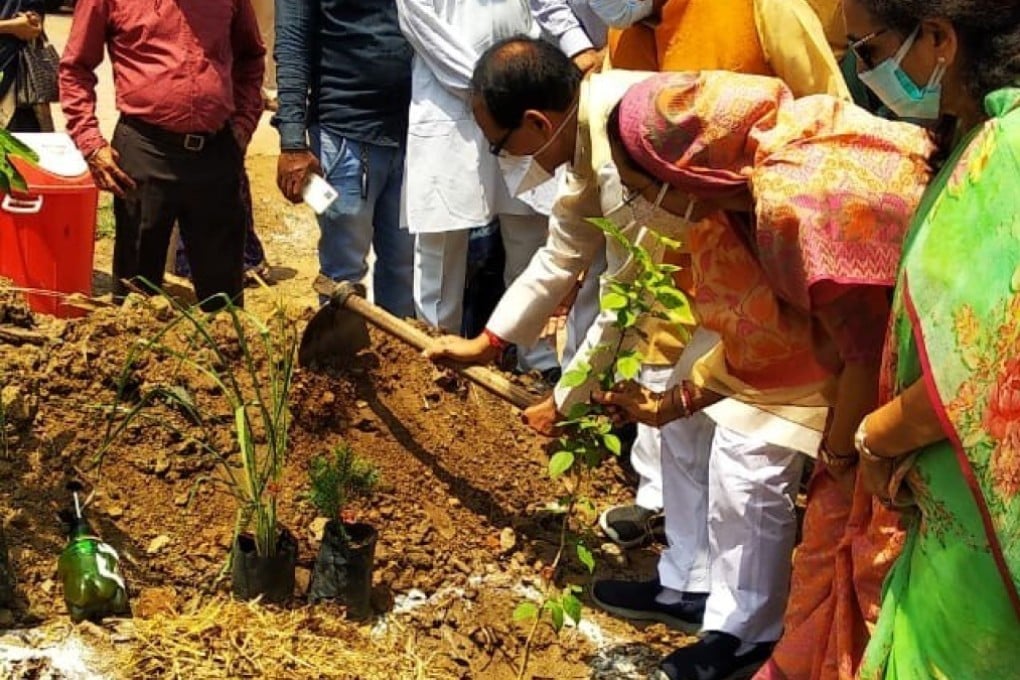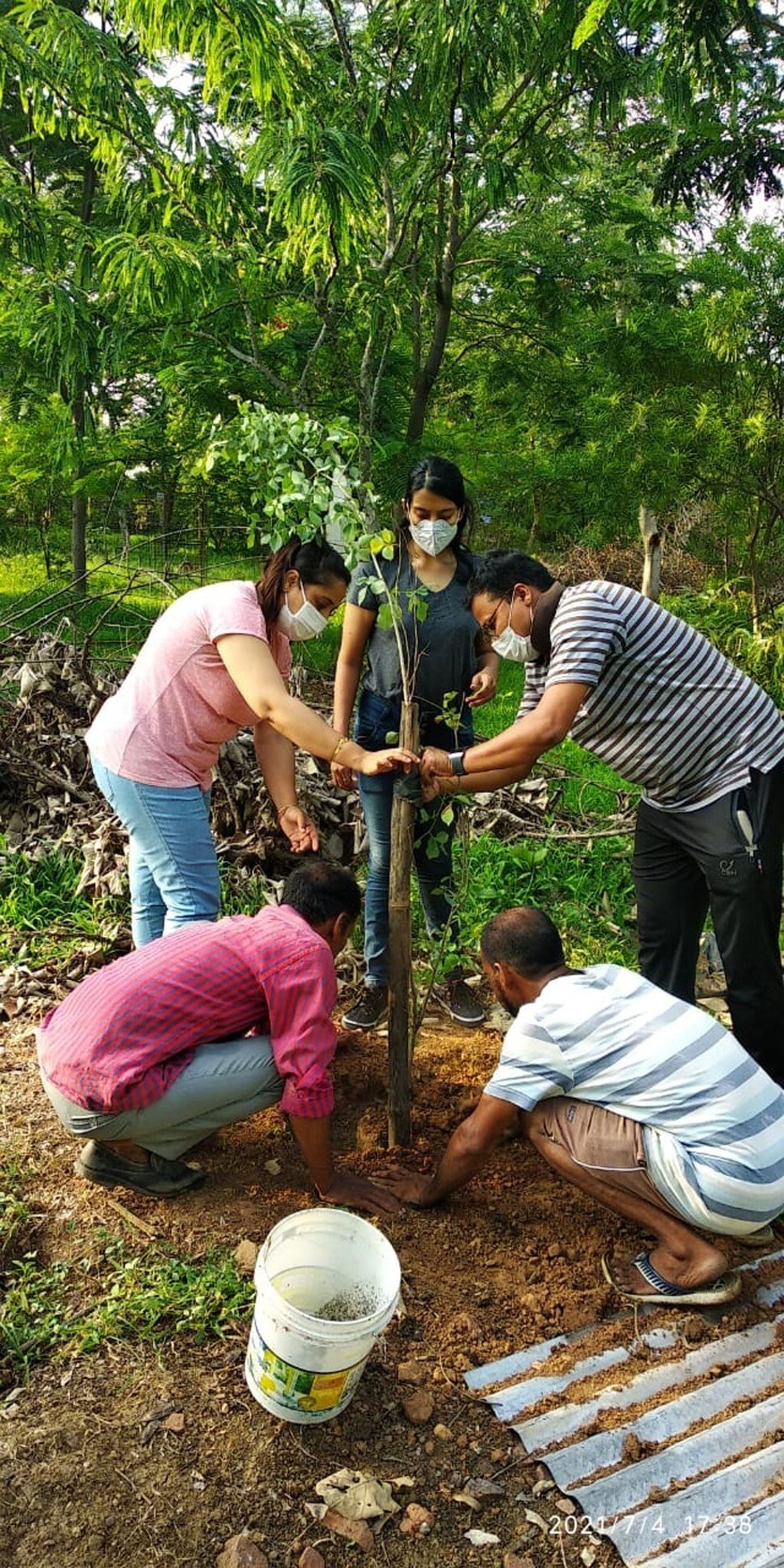In India, a park made of human ashes pays tribute to victims of Covid-19’s second wave
- When a crematorium in Bhopal was overwhelmed with uncollected remains it came up with a novel, but respectful and environmentally friendly solution: mixing them with soil, sawdust and cow dung and planting a memorial park
- During the fear and panic that gripped the city, customary rites for the dead were abandoned. Now it is hoped a peaceful and beautiful memorial can make up for the rushed rituals of the time

Until recently, the ashes had lain in Bhadbhada Vishram Ghat crematorium in large urns, uncollected by any relative. While wishing to accord them all due respect, crematorium manager Mamtesh Sharma, 51, was increasingly concerned about space.
“At the height of the second wave after we had been burning 100 to 150 bodies a day, we had to keep making space. We added more and more lockers in which we keep the urns. Once we made space for 500 lockers. Then we added another locker room. Now there isn’t any space left but we need space for other cremations,” he said.
The obvious solution was to immerse the ashes, according to Hindu tradition, in the Narmada river, which flows through Bhopal. But Sharma did not want to pollute the river with such a huge quantity of ash in one go. It takes about 500kg of wood to cremate a body, resulting in around 50kg of ash.
The solution, Sharma and his colleagues decided, was to mix the ashes with soil, sand, wood sawdust, and cow dung and scatter it on the 12,000 sq ft of nearby wasteland and turn it into a memorial park for the dead.
